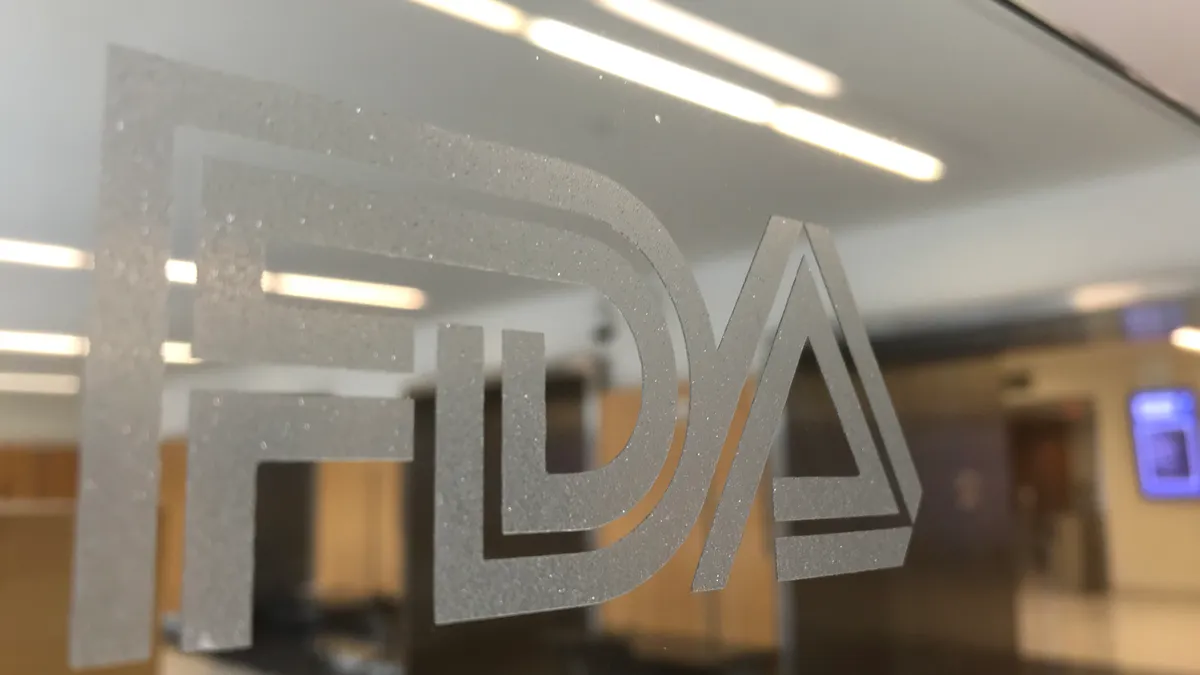Dive Brief:
- FDA on Monday released final guidance that details the process for requesting a meeting with the agency or feedback ahead of a planned or potential device marketing submission. A meeting can be conducted in person or via teleconference.
- The guidance document addresses the types of applications covered in the Q-Submission program, including pre-submissions, submission issue requests, study risk determinations and informational meetings.
- FDA also announced it will hold a webinar on June 11 to discuss the Q-Submission program.
Dive Insight:
The Q-Submission program creates a process for manufacturers to receive input from FDA outside of a device submission. Participation is voluntary, and meetings can occur at different points in a product’s development cycle. For example, a manufacturer could hold an informational meeting, followed by a request for a breakthrough device designation and later hold discussions to refine specific aspects of non-clinical and clinical testing.
The agency said one hour is typically enough for most meetings.
Meetings are intended to facilitate an open discussion of technical, scientific and regulatory information that can help FDA understand clinical, nonclinical or analytical studies related to an investigational device exemption or marketing submission. FDA said it will be prepared to discuss the Q-submission as well as any written feedback the agency has already provided.
FDA's guidance document goes into detail on what to include in a cover letter to the agency for a Q-submission, including a draft agenda, the meeting format requested, proposed dates, planned attendees, purpose, product description, proposed indications for use and regulatory history.
The document also lays out the timeline, recommended content and feedback mechanism for each type of Q-submission. As part of the cover letter for a Q-submission the agency recommends a manufacturer should submit planned follow-up submissions, background information and supporting documents to allow FDA to develop feedback for pre-submission questions, the specific questions, study protocols and regulatory approach.
For example, after a pre-submission meeting request, FDA staff will conduct an acceptance review within 15 days of the review clock.
If a meeting request is accepted, the subsequent acceptance review will assess whether the submission is complete according to an acceptance checklist. The agency then will attempt to schedule a meeting on one of the submitter's requested meeting dates. Meeting dates 60-75 days following FDA receipt of a submission are most likely to be feasible, the agency said.
Written feedback will be provided to the submitter by email or fax and will include written responses to the submitter questions, FDA's suggestions for additional topics for the meeting or teleconference, or both. If no meeting is requested, written feedback will be provided within 70 days of receipt of the accepted submission. If a meeting is sought, written feedback will be provided at least five days prior to the scheduled meeting, and no later than 70 days from receipt of the accepted pre-submission.









